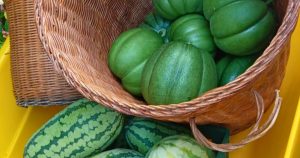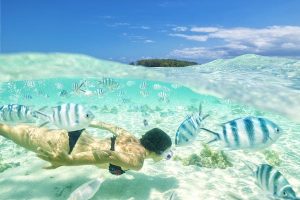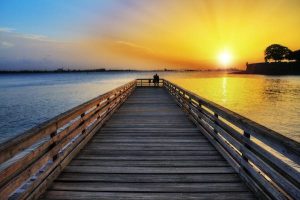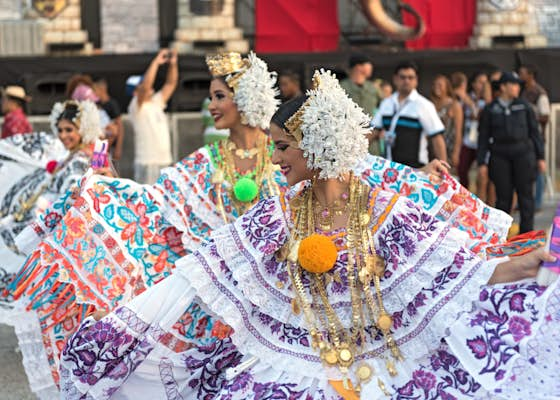
If warm weather, sky-grazing rooftop bars and glorious biodiversity tickle your fancy, then the right time to visit Panama City is…any time.
Panama is a tale of two oceans – and two seasons, wet and dry. Just 9 degrees above the equator and outside the hurricane belt, the country’s position makes it a sun-drenched destination year-round.
Its capital is a sophisticated metropolis containing a tropical rainforest, two Unesco World Heritage Sites and astonishing feats of engineering, among other treasures. As you plan your trip to explore it all, use our guide to find the best time for your vacation to Panama City.
Scout new ways to explore the planet’s wildest places with our weekly newsletter delivered to your inbox.
Mid-December to April is the best time for hikes, beaches and festivals
In the drier of Panama’s two seasons, the temperature doesn’t vary drastically from month to month, and downpours are both less frequent and less temperamental.
Also known as “summer” (verano), the dry season runs from mid-December through April. These months coincide with increased demand and higher prices as snowbirds jet in en masse for blue skies, warmer weather and epic adventures across the country.
Panama City is a fantastic base from which to explore the country’s landscapes, countless aquamarine beaches and archipelagos. (Panama has more than 1000 camera-ready islands.)
Within the capital itself, there’s much to see and do when the rains stay away. Those with a penchant for the past will be thrilled to discover ruins, recovered treasure and well-preserved buildings on a stroll through the historic district of Casco Viejo.
Behold this modern city’s glass and concrete skyline from a sleek rooftop bar – of which there are many – or wave at ships passing through the world-renowned Panama Canal. The tropical climate and shower-free days lend themselves perfectly to sightseeing, alfresco dining, bayfront walks, bike rides and hikes.
Panama City is the only world capital with a tropical rainforest within its city limits. Head to the 573-acre Parque Natural Metropolitano to see toucans and motmots soaring majestically above, or meet monkeys and iguanas scurrying around the trees.
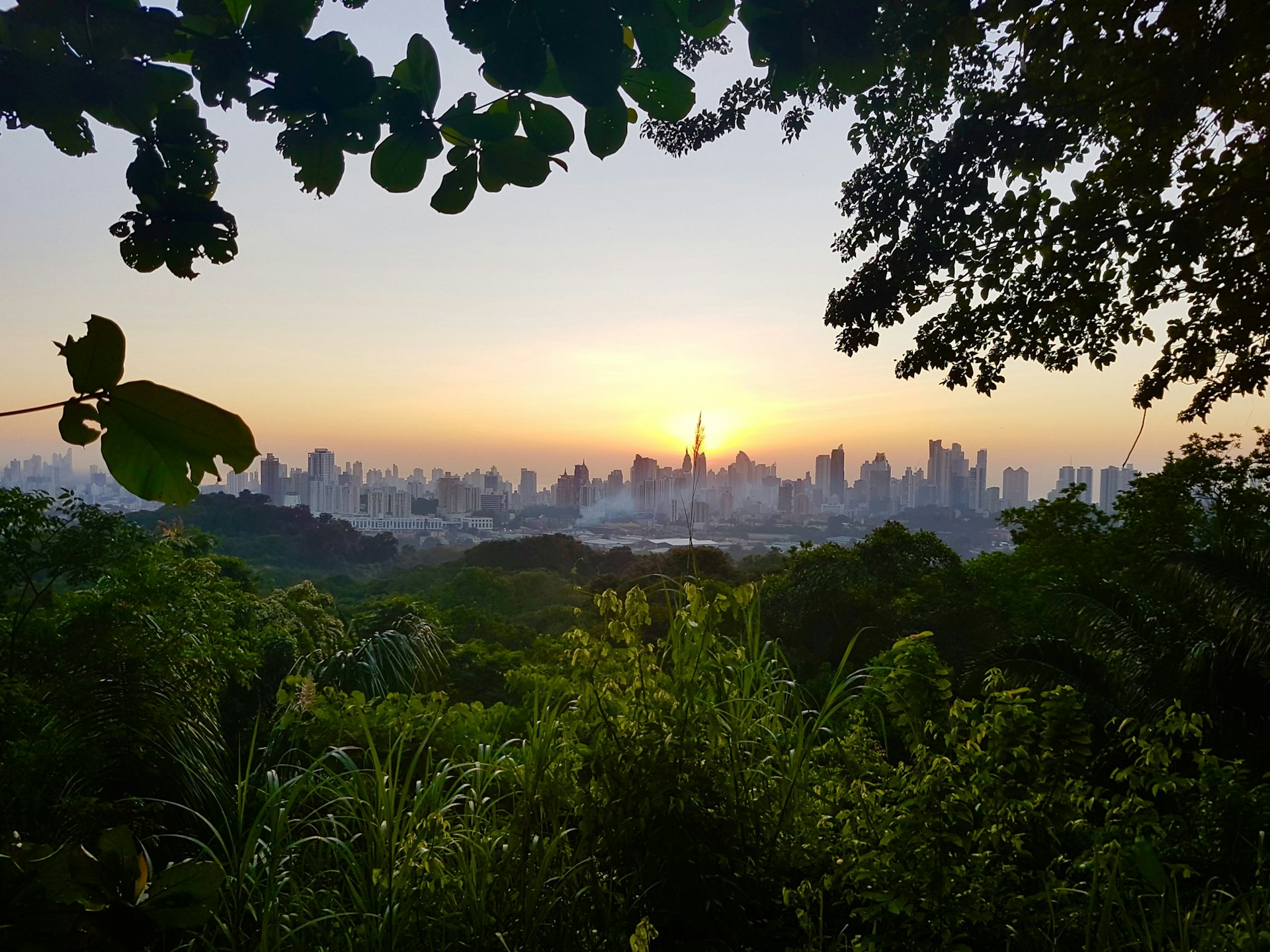 Panama City is the only world capital with a tropical rainforest within its city limits. It’s an easy and wonderful place to explore during the dry season © Rosie Bell / iStockphoto / Getty Images
Panama City is the only world capital with a tropical rainforest within its city limits. It’s an easy and wonderful place to explore during the dry season © Rosie Bell / iStockphoto / Getty Images
May to mid-December is excellent for whale watching, surfing and national celebrations
Though summer-style weather lasts all year long in Panama, the wet season between May and mid-December is referred to as “winter” or “green season.” Since it gets awfully humid during this period, it’s the cheapest time to visit.
Locals assert that Panama has two varying climates on each coast. The Caribbean coast experiences more showers, while the Pacific coast – where Panama City is situated – has fewer.
The upside to Panama City’s wet season is its predictability, as rains begin gradually and intensify later in the season. Throughout these wetter months, as the sun looms and tropical flowers bloom, it’s still possible to enjoy outdoor pursuits with a bit of planning and organization.
While days typically start out sunny, you’ll need an umbrella for sideways showers between 2pm and 5pm. Keep in mind that it seldom rains all day, and storms often leave as fast as they come. (Also note that taxi fares surge dramatically during these torrential outbursts.) Hikes at Parque Natural Metropolitano or Cerro Ancon might also be more challenging.
In the evenings, you can stargaze and listen to the soothing hum of the Bay of Panama from Cinta Costera, the scenic waterfront boardwalk, or from an inviting rooftop restaurant. Nights, though cooler than during the dry season, remain lovely and pleasant.
Overall, the wet season is the best time to snag deals and avoid large crowds.
How to spend a perfect weekend in Panama City
Enjoy jazz music in January
Check out a who’s-who of the international jazz music scene during the Panama Jazz Festival, a cultural event that’s been sweetly serenading the capital for two decades. January is also the best time to visit Boquete in the province of Chiriquí. If you want to taste Geisha coffee – called “the Champagne of coffees” – it’s produced here during the Flower and Coffee Festival.
Key events: Panama Jazz Festival, Feria de las Flores y del Café (Flower and Coffee Festival)
 Seemingly everyone in Panama City parties in the street during annual Carnaval celebrations in February © ooo.photography / Shutterstock
Seemingly everyone in Panama City parties in the street during annual Carnaval celebrations in February © ooo.photography / Shutterstock
Celebrate Carnaval in February
To see the city at its driest, busiest and most spirited, go in February during Carnaval, an unforgettable multi-day spectacle with flamboyant costumes, music and general jolly mayhem. February is also one of the best times to visit the paradisiacal San Blas Archipelago, where the fine weather will make it easy to visit its 365 dreamy islands.
Key events: Carnaval (starts four days before Ash Wednesday; this can fall in March), Micro Brew Fest, Bocas Invitacional
Spring breakers invade in March
North American students on spring break join the throngs of sunseekers in Panama each March. If Easter falls in this month, expect shop and business closures and increased demand for accommodations.
Key events: Panamá Burger Week (can fall in April), Semana Santa (can fall in April), Easter
Head to the shore in April
April is the height of t-shirt weather and the perfect time to head somewhere with immaculate white sand, azure blue water and lush green forests.
Key events: Feria Internacional de Azuero in La Villa de los Santos
May brings the start of the wet season
The wet season begins. When it pours in Panama City, travelers can seek refuge indoors at one of the city’s best museums: the Frank Gehry-designed BioMuseo, the world’s only museum dedicated to biodiversity. Shoppers can stay dry and find the latest fashions at one of many shopping complexes, such as Albrook Mall, the largest in the Americas.
Key event: Labor Day
World Pride Panama takes place in June
If you arrive in June, you’ll be just in time for World Pride Panama. During this annual rainbow-hued party, revelers celebrate events at specific nightclubs and processions along Cinta Costera and in the old town.
Key events: World Pride Panama (can fall in July), Corpus Christi in La Villa de Los Santos
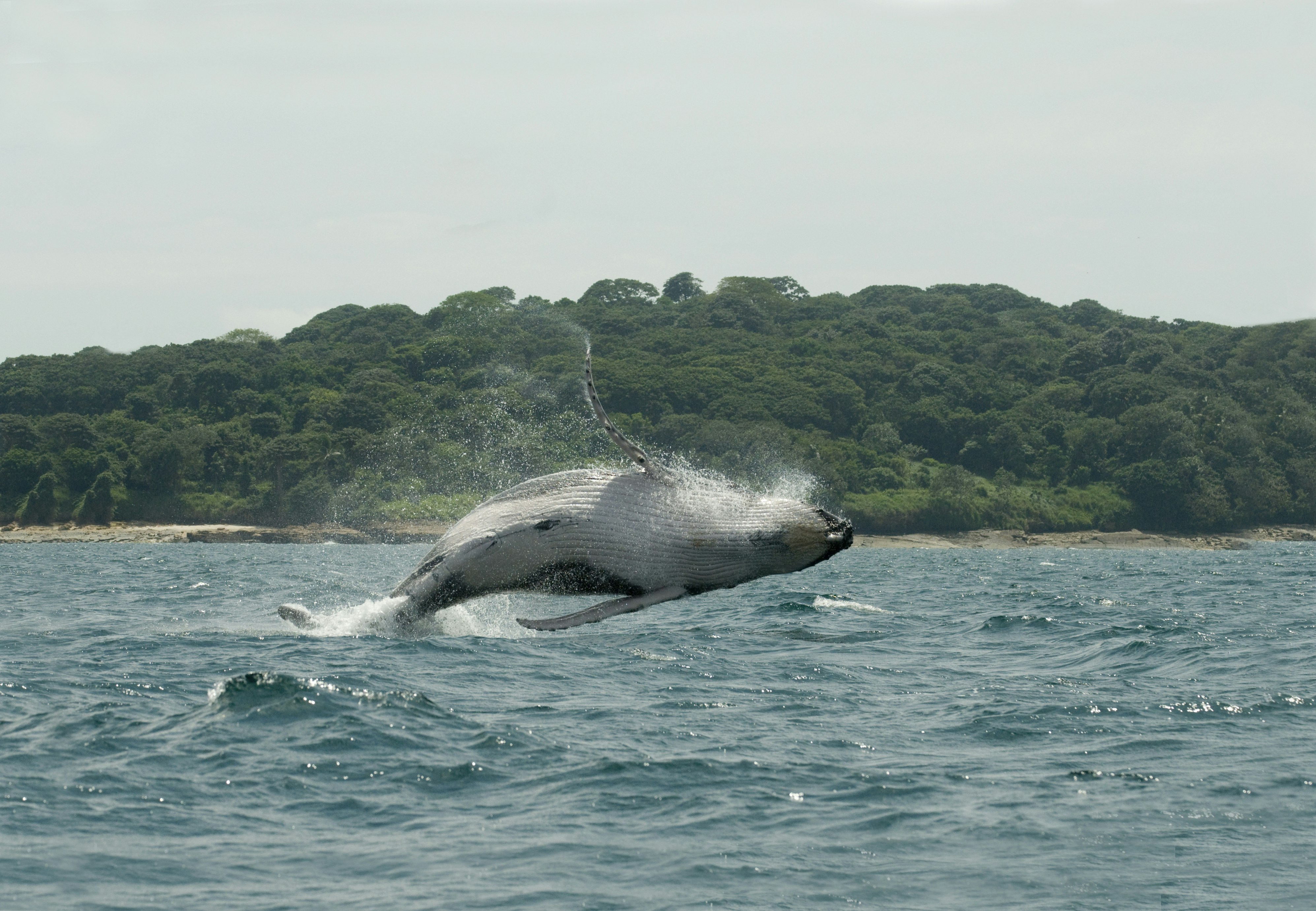 The majestic humpback whales migrate past Panama every July through October © Gerard Soury / Getty Images
The majestic humpback whales migrate past Panama every July through October © Gerard Soury / Getty Images
Go whale watching in July
The humpback whale migration period begins in July and lasts until October. Escape the capital and head to the Gulf of Chiriquí National Marine Park for wildlife watching and to snorkel and dive in waters all shades of blue and green.
Key events: Festival Nacional de la Pollera in Las Tablas
National celebrations kick off in August
Congratulations are in order in August for Panama City and its famous canal, as locals celebrate the 1519 founding of Panamá Viejo by the Spanish on August 15. On the same date in 1914, the interoceanic passage opened for commercial ships. It operates 365 days a year; the best time to visit the Panama Canal at the Miraflores Visitor Center is first thing in the morning, just after it opens.
Key events: Panama La Vieja Day, Panama International Book Fair (FIL), IFF Panama International Film Festival (schedule may change)
 Head to the beaches on either of Panama’s coasts in September for the best surfing waves of the year © Joel Carillet / Getty Images
Head to the beaches on either of Panama’s coasts in September for the best surfing waves of the year © Joel Carillet / Getty Images
September is for surfing
The wet season brings swells on both coasts, luring eager divers and surfers. The bonafide surfer’s paradise that is Bocas del Toro hosts the Feria Internacional del Mar in September, with heaps of Caribbean cuisine, music performances and pumping parties.
Key events: Panamá Fashion Week, Feria Internacional del Mar
Head to Portobelo in October
If you’re in Panama in October, consider a trip to Portobelo for the Festival del Cristo Negro, during which an effigy of a Black Jesus Christ is proudly paraded around the Caribbean port city. The rains persist throughout the month, which can offer a respite from the often-punishing Panamanian heat.
Key event: Festival del Cristo Negro
November is for local celebrations
Depending on your budget and intended itinerary, November can be the best or worst month to visit Panama. Panamanians are serious about enjoying themselves – and since the entire month is jam-packed with national holidays, many businesses, banks and stores in the capital close.
Urbanites flee to cool off at beaches and waterfalls, leaving behind something of a ghost city. If you’ll be joining them for the revelry, you’ll need to secure lodging as early as possible.
Key events: Panamá Cocktail Week; Independence from Colombia (Nov 3); Flag Day (Nov 4); Colón Day (Nov 5); First Call for Independence (Nov 10); Independence from Spain (Nov 28)
Hotel occupancy increases in December
Prior reservations and a generous budget are obligatory if you’re traveling to Panama during December’s holiday season. Hotel occupancy and rates are high as the delightful dry season returns.
Key events: Christmas, New Year

